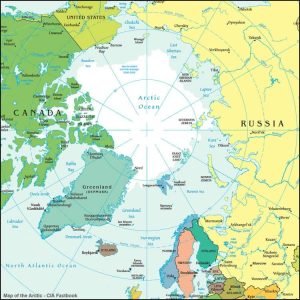Empire/US Continuance of Governance
Now that Trump has come out of his closet between the US election and the formal electoral count that confirmed him as US President, we can already see what Brian Berletic calls Continuity of Governance or bipartisan Continuity of the US system.
The crux of the matter as I’ve said for a long time is fomenting chaos. Michael Hudson epically called this controlled anarchy. Brian Berletic call it as mentioned, Bi-Partisan Continuity of the US system.
Whereas Trump calls out a policy of America First, his actions are that of a neo-colonialist, who will plunder this whole world to be able to proclaim his America First. He also has an ax to grind and his opponents are disappearing into the woodwork, or just like cowards joining his train.
This is not America First by American Hands, it is America First by Hands that Plunder.
This is the Continuance of Governance and is what we’ve seen since the Bretton Woods Conference:
The Bretton Woods Conference, 1944
The Bretton Woods Conference, officially known as the United Nations Monetary and Financial Conference, was a gathering of delegates from 44 nations that met from July 1 to 22, 1944 in Bretton Woods, New Hampshire, to agree upon a series of new rules for the post-WWII international monetary system. The two major accomplishments of the conference were the creation of the International Monetary Fund (IMF) and the International Bank for Reconstruction and Development (IBRD).
The lessons taken by U.S. policymakers from the interwar period informed the institutions created at the conference. Officials such as President Franklin D. Roosevelt and Secretary of State Cordell Hull were adherents of the Wilsonian belief that free trade not only promoted international prosperity, but also international peace. The experience of the 1930s certainly suggested as much. The policies adopted by governments to combat the Great Depression – high tariff barriers, competitive currency devaluations, discriminatory trading blocs – had contributed to creating an unstable international environment without improving the economic situation. This experience led international leaders to conclude that economic cooperation was the only way to achieve both peace and prosperity, at home and abroad.
The first articulation of this vision was included in the Atlantic Charter issued by Roosevelt and British Prime Minister Winston Churchill at the Atlantic Conference of August 1941. The Charter’s fourth point committed the United States and Great Britain “to further the enjoyment by all States�of access, on equal terms, to the trade and to the raw materials of the world which are needed for their economic prosperity.” The fifth point expressed a commitment to “the fullest collaboration between all nations in the economic field with the object of securing, for all, improved labor standards, economic advancement and social security.” Great Britain and the United States elaborated on these principles the following year during the negotiations concerning the terms under which the United Kingdom would receive lend-lease assistance from the United States. Britain agreed to join in promoting international cooperation that would expand “production, employment, and the exchange and consumption of goods” and would reduce tariffs and other trade barriers. Washington and London also agreed to begin talks aimed at achieving these international economic goals.
By February 1942, officials in both countries had already begun laying more concrete plans for international economic stability in the postwar world. Harry Dexter White, Special Assistant to the U.S. Secretary of the Treasury, and John Maynard Keynes, an advisor to the British Treasury, independently drafted plans for organizations that would provide financial assistance to countries experiencing short-term deficits in their balance of payments. This assistance would help ensure that such countries would not adopt protectionist or predatory trade and monetary policies to improve their balance of payments position. Both plans envisioned a world of fixed exchange rates, believed to be more conducive to the expansion of world trade than floating exchange rates.
Although similar in purpose, the organizations proposed by Keynes and White differed in size, philosophy, and function. From 1942 until the spring of 1944, numerous bilateral and multilateral meetings of allied financial experts were held in an effort to agree upon a common approach. Finally, on April 21, 1944, allied leaders released a “Joint Statement by Experts on the Establishment of an International Monetary Fund.” This statement provided the basis for the negotiations at Bretton Woods. After a preliminary conference in Atlantic City in mid-June 1944, the Bretton Woods Conference convened on July 1. Three weeks of discussion later, the delegates signed the Final Act of the United Nations Monetary and Financial Conference, which included charters outlining the aims and mechanisms of both the IMF and IBRD.
The IMF was charged with the maintenance of a system of fixed exchange rates centered on the U.S. dollar and gold. A forum for consultation and cooperation, the organization would contribute to orderly international monetary relations and the expansion of world trade by providing short-term financial assistance to countries experiencing temporary deficits in their balance of payments; balance of payments deficits attributable to more long-term structural factors could be addressed through modification of a country’s exchange rate. The IBRD, meanwhile, was responsible for providing financial assistance for the reconstruction of war-ravaged nations and the economic development of less developed countries.
In July 1945, Congress passed the Bretton Woods Agreements Act, authorizing U.S. entry into the IMF and IBRD. The two organizations officially came into existence on December 27, 1945. The fixed exchange rate regime established at Bretton Woods endured for the better part of three decades; only after the dollar exchange crises of August 1971 (when President Richard Nixon suspended the dollar’s convertibility into gold) and February/March 1973 did floating exchange rates become the norm for the currencies of the major industrialized nations.
Sounds good eh? All fairness and “the fullest collaboration between all nations in the economic field with the object of securing, for all, improved labor standards, economic advancement and social security.”
That turned out to be an odious objective and today we live with what is called a rules-based international order. The improved labor standards, economic advancement, and social security are but a fleeting dream of the past.
The outcome of this was an extraordinary economic and financial privilege for the US that became weaponized in their hands. Hey Presto! We have a self-declared boss of the world, called empire, and the promise of a ‘post-war world’ meant that the empire may kill and maim, but the rest of us may not. There is nothing that is not weaponized and if countries try to develop they find their path blocked unless they pay the almightly dollar for the privilege of being humans here on earth. The advertising was wonderful as countries now would be independent and colonization and repression of peoples would be a part of history. (Does that sound a little like BRICS?)
The penny soon dropped and even as early as 1955 at the Bandung Conference the advertising for this extraordinary privilege that the empire grabbed, was unmasked.
The Bandung Conference
At the conference which took place from 18 to 24 April 1955 in Bandung, Indonesia, delegates from newly independent African and Asian countries met to affirm their desire for independence and their refusal to align with the world powers. The conference was chaired by Indonesian President Sukarno, and was attended by representatives from 29 countries: 23 from Asia and 6 from Africa. Participants included Gamal Abdel Nasser for Egypt, Indian Prime Minister Jawaharlal Nehru and Zhou Enlai, Premier of the People’s Republic of China.
They were united in their opposition to colonialism, and urged countries still under colonial rule to fight for independence. They demanded:
- the decolonisation and emancipation of the peoples of Africa and Asia;
- peaceful coexistence and economic development;
- non-interference in internal affairs.
The conference had a considerable psychological impact. It underlined the fundamental rights of colonized peoples and demonstrated the strength of their resistance to European domination. Feeling that their positions in their overseas territories were increasingly under threat, the European powers would soon have no choice but to turn towards unity and to consider how best to preserve privileged relations with their colonies. The Bandung Conference therefore marked the emergence of Third-World countries on the international stage. As a sop to the conscience, the nomenclature of Third-World countries was quickly changed to something more elegant, like Developing Countries.
Overall, we can say that in a sense we still are at the point of the Bandung conference, still seeking the promised land of peaceful coexistence and economic development. The empire is desperately and fiercely protecting its Continuity of Governance as without it, it would simply be a normal country with major economic and social problems.
As in days of old Trump is protecting this Continuity of Governance and strongly entering the strategy of chaos or controlled anarchy. Threatening to take back the Panama canal, is threatening to send Pamana back to the stone age. Threatening to acquire Greenland (the biggest island in the world) is a war strategy because he wants it for its strategic position in the still-alive vision of breaking Russia into parts, owning it, and using its resources for Continuity of empirical Governance. He wants Canada too. Take a look at the map of the Arctic, and you will see why in a hot minute.

The action of whatever is left of NATO seeking new life energy and creating a possible reason for its existence while positioning and threatening China is part of the chaos strategy. NATO is not really needed in Europe any longer, as Europe has been destroyed as part of the chaos or controlled anarchy.
Then there are the threats to Mexico, muted at the moment but believe me, Trump wants it. In fact, in a moment of hyperbole, Trump wants the golden Trump sign floating over the world in space somewhere, proclaiming ownership (and an Elon Musk Balloon floating next to it!). Did you know that the Trump luxury hotel was taken out of the loop in Panama because of bad treatment of staff? The Trump sign was taken down. Next to the strategy of chaos, there is also the Trump personality of getting back at all that he considers his enemies. This is a dangerous and even perilous combination but fits the strategy of chaos ideally, like a puzzle piece.
While the empire is crowing victory at the moment because of a temporary win in Syria, this only serves to prove the tactics of the chaos, and grabbing the weakest resistance nation with israel as the airforce for paid terrorist mercenaries. The strategy of chaos depends on this maxim: We Lie, We Cheat, We Steal. We cannot continue dealing with this empire.
This then brings us to the point of resisting the strategy and tactics of chaos. What can we stand for? Let’s list!
NO is the first word.
We will not negotiate with those that are non-agreement capable
Yankee, Go Home! Do not let the chaos strategists in your country or region. An interesting event happened in Venezuela where they sent the envoys of non-friendly Latin American countries home, for example Equador. When they opened their eyes, these offices very quickly were staffed with Swiss personnel, can you believe it. A very smart but also hilarious and incredibly nasty counter from the pro-western factions. I guess they are going to have to ban the Swiss or something equally nuts. Ban the Swiss sounds to me like a good slogan.
A trade agreement between the non-friendlies in the light of today’s empirical strategy is not a trade agreement. One of the Latin American trade organizations signed a trade agreement with the EU, which has the European farmers up in arms as they cannot compete. Don’t do this. Make trade agreements with friendly countries.
Gather in strength. We have BRICS, SCO, ASEAN and others. We have Russia and China and Iran, who is now in the cross-hairs to a bigger extent than before. Of course the JPCOA was a control strategy for Iran and that is why it fell apart. Trump took the wheels off this one, as he saw he was not going to get his control. Russia is still too friendly as it supported the process, for the fact that it was a wide-ranging and positive process.
Float an alternative currency. What is to be so scared about?
Let the world break into two or three factions, the empirical factions and the rest of the world factions and the middle-of-the-road factions. We, the rest of the world are strong enough to do this. Don’t pick up this penny of a promised land of peaceful coexistence. One cannot agree with those that want to own you and if they cannot do that, kill you. The time has come for a kick in the teeth.
Set together a rest of the world military. Dwarf NATO. Make it very clear that any warmonger will be taken out before they can make their war. As Trump now lives on threats and thinking that he can make others fear him, while he is a laughing stock, let’s organize. We should gather around Panama and give them strength and say NO.
Boycott the empire, Divest from the empire, Sanction the empire. You don’t have to do with major statements of intent, just do it.
(A small update that a commentator reminded me of). Participate in multipolarity. Draw your nodes and work with them. Don’t wait!
Are there more? Over to you in the commentary.
Finally, on a personal note, take a good and peaceful rest over the festive period. You will need a very particular personal strength, tenacity and courage for the new year. If you cannot, wait for China’s new year, and Take Two!



Excellent overview. Thank you.